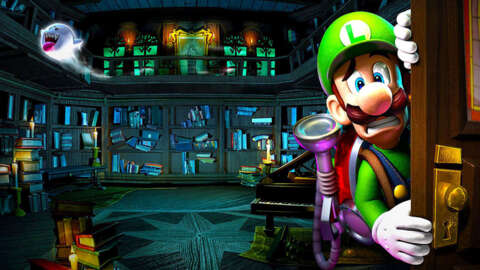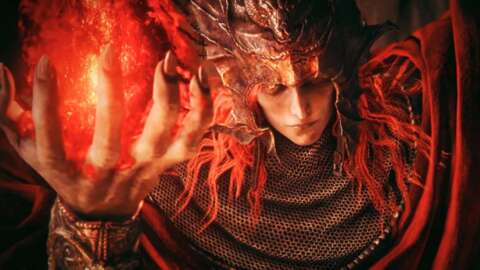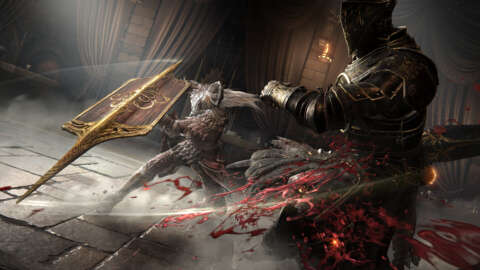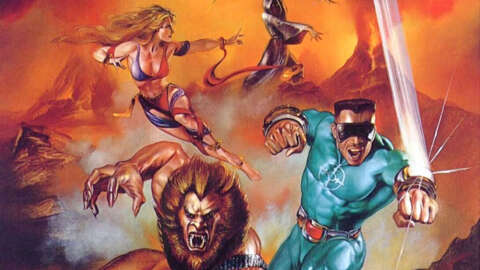Nintendo has gained a reputation, and not unfairly, for double- or even triple-dipping on its beloved catalog of classic games. From Super Mario All-Stars on Super NES, to the Classic NES Collection on Game Boy Advance, to modern HD remasters like Metroid Prime and Paper Mario: The Thousand-Year Door, Nintendo has never been shy about capitalizing on its history. As we move into an increasingly digital era, Nintendo has also been noticeably slow to adopt a single, cross-generation digital library akin to PlayStation and Xbox. We’ve seen lots of speculation over whether Nintendo will finally break this trend as it moves into the era of the Switch successor–and recent remasters like Luigi’s Mansion 2 HD show why it’s so necessary that the company follows through with this pro-consumer move.
Luigi’s Mansion 2 HD is a remaster of a 2013 3DS game, and a pretty good one at that. I enjoyed revisiting the 3DS game on a modern system and felt it was paying homage to its history. But it’s precisely because this appealed to me as a historical artifact that I couldn’t help but think about what it means for my digital collection. Luigi’s Mansion 2 is, so far, the middle chapter of a series that has already grown past it. It’s nice to have the game unshackled from the 3DS, but that won’t matter if its destiny is just to get shackled to the Nintendo Switch instead.
To be blunt, Luigi’s Mansion 2 is good but slight. It’s an enjoyable little chapter and a neat way to see how the Luigi’s Mansion series has developed, but it’s lower on the tier list of vital remasters than games that are older, more in need of modernization, or just difficult to find. The mere existence of an HD remaster of Luigi’s Mansion 2 shows how Nintendo is filling its release calendar, which is a fine strategy as the Switch lives an especially long time for a console. And it’s far from the last. At its June 2024 Nintendo Direct, the company announced a remaster of Donkey Kong Country Returns, a game that was already ported to the 3DS shortly after its initial release on the Wii and is now making the journey to Switch.
Nintendo has not been especially forward-facing in its online tools. It’s clear that when the 3DS was released, the company hadn’t fully developed its online infrastructure to last into the future. This spate of Wii U and 3DS remasters may be because that account system was not built for the future, Nintendo wants to untether its games from the dual-screen and 3D functionality, or some combination of both.
But there are hopeful signs that the company is learning. Nintendo of America president Doug Bowser said last year that the formation of a single unified “Nintendo Account” will smooth the transition into the next console. While previous hardware had each set up their own distinct account systems, which tied your digital purchases to them, the Switch Online service seems to be under the umbrella of your overall Nintendo Account. That means that when we move to the Switch 2–or whatever it may be named–your account will come with it. Nintendo will at least recognize which games you already own digitally. Backwards compatibility with new hardware is its own distinct technical challenge, and Bowser stopped short of confirming it, but the new system recognizing your existing digital library is a necessary first step.
And that’s a step that is more important now than ever before. Nintendo has already been slow to adopt a modern approach to your digital library, which has been frustrating, but its library of stellar games and years of goodwill has carried it through. Falling behind for another entire generation would be much harder to forgive. Not to mention, it would do damage to the company’s own reputation and value proposition going forward.
To understand why, we just need to look at the words of one of Nintendo’s console rivals. Xbox head Phil Spencer gave a blunt assessment of its own console business, saying that when it lost the race between PS4 and Xbox One, it created a ripple effect going forward. Since that was the generation that most consumers started building their digital library, he said, it was the worst generation for Xbox to lose. Consumers don’t want to switch to a different console when they already have their digital library in an existing ecosystem.
Going even further back, its competitors have done more than Nintendo to offer their earliest games as part of your permanent collection. Hundreds of Xbox 360 games simply work on modern Xbox consoles, disc and all. Original Xbox games can be purchased and remain in your library, for example, and many are included as part of Game Pass. To whatever extent this is an ongoing technical hurdle, it’s one that others solved years ago while Nintendo continues to struggle.
Nintendo isn’t going head-to-head with PlayStation and Xbox the way those two are directly challenging each other. For the last several generations, it has marched to the beat of its own drum and remained safely out of the power-console fray. But there’s a lesson to be learned about how gamers perceive the value of their purchases regardless. Going forward, players expect their games to come with them. We don’t need to buy a third version of Luigi’s Mansion 2 on the next Switch, or a fourth version of Donkey Kong Country Returns. If Nintendo wants players to respect its long history of great games, it needs to let us build a digital collection that lasts.



